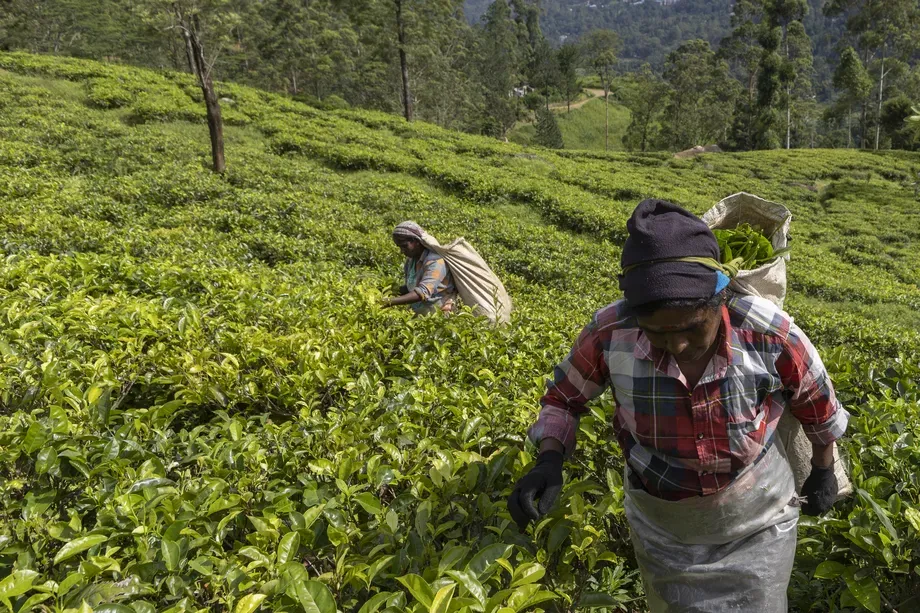Sri Lanka's Organic Farming Setback, Explained

Sri Lanka’s economy is in free fall. Runaway inflation reached 54.6 percent last month, and the South Asian country is now headed toward bankruptcy. Nine in 10 Sri Lankan families are skipping meals, and many are standing in line for days in the hope of acquiring fuel.
The dire situation culminated last weekend in an uprising in which an estimated 300,000 protesters took over President Gotabaya Rajapaksa’s home and offices and set fire to Prime Minister Ranil Wickremesinghe’s home. Rajapaksa resigned after fleeing the country, leaving Wickremesinghe as interim president.
There’s no singular cause for the crisis, which had been building for years due to political corruption and right-wing authoritarian politics that weakened democracy. In April 2019, the crisis accelerated after suicide bombings at churches hurt the island nation’s critical tourism industry, which weakened its currency and made it more difficult for the government to import essential goods.
At the end of 2019, tax cuts slashed government revenue, while in 2020 the Covid-19 pandemic further decimated the tourism industry, with skyrocketing inflation pouring more fuel on the fire.
Pandemic aside, that’s not an atypical set of conditions for the collapse of a developing country like Sri Lanka. But in the spring of 2021, President Rajapaksa made an unusual decision: He banned synthetic fertilizer and pesticide imports practically overnight, forcing Sri Lanka’s millions of farmers to go organic. It proved disastrous, as a group of Sri Lankan scientists and agriculture experts had warned.
According to one estimate, the president’s agrochemical ban was poised to save Sri Lanka the $400 million it was spending yearly on synthetic fertilizer, money it could use toward increasing imports of other goods. But Rajapaksa also argued that chemical fertilizers and pesticides were leading to “adverse health and environmental impacts” and that such industrial farming methods went against the country’s heritage of “sustainable food systems.”
“There is a section of the Sri Lankan NGO society and civil society, which has been arguing for the spread of organic farming in Sri Lanka for quite a while. ... This has also been actively supported by many international groups,” R. Ramakumar, an agricultural economist at the Tata Institute of Social Sciences in India, told me.
Instead of fixing the crisis, however, the move only worsened it.
“The organic policy was implemented to sort of ameliorate an ongoing crisis … ironically, what it did was that it ended up exacerbating the crisis,” Ramakumar said.
The agrochemical ban caused rice production to drop 20 percent in the six months after it was implemented, causing a country that had been self-sufficient in rice production to spend $450 million on rice imports — much more than the $400 million that would’ve been saved by banning fertilizer imports.
The production of tea, Sri Lanka’s literal cash crop — it’s the country’s biggest export — fell by 18 percent. The government has had to spend hundreds of millions on subsidies and compensation to farmers in an effort to make up for the loss of productivity.
While agrochemicals cause a host of environmental and public health problems, which in part inspired the ban, they also help farmers grow more food on less land, which is critical for small, developing countries like Sri Lanka that rely on agriculture for both sustenance and export income. Moving away from an agrochemical-heavy food system makes sense in a lot of ways, but the Sri Lanka example underscores the importance of being mindful of the economic, political, and social context of any reform.
Around five months into the ban, farmers were allowed to begin using synthetic fertilizers on tea and a few other crops while keeping the ban in place for others, but by that point, much of the damage was done.
The blinkered organic rollout accelerated an economic crisis long in motion, but it also crystallized the stakes of the debate over conventional versus organic farming, demonstrating just how critical high-yield crops are in economies still based largely on agriculture.
)
)
)



)
)
)
)
)
)
)
)
)
)
)
)
)
)
)
)
)
)
)
)
)
)
)
)
)
)
)
)
)
)
)
)
)
)
)
)
)
)
)